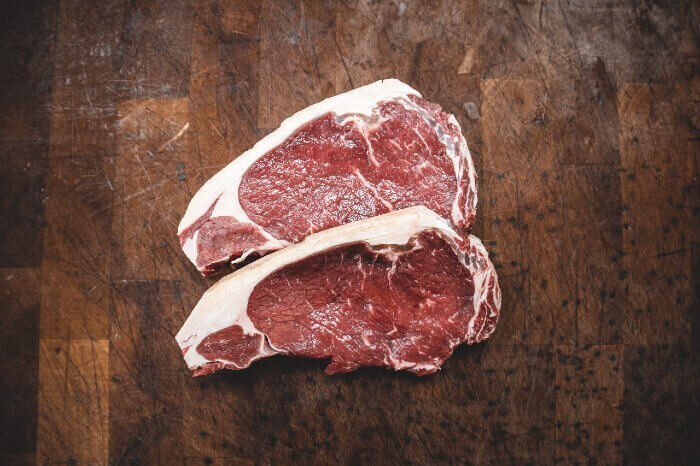How Important is Taurine for Dogs?

DogFoodAdvisor is reader supported See how
Dog Food Advisor is 100% impartial and is never paid to promote any brand. But if you buy using links on this page, we may earn a referral fee.
When doing research on pet food, you’ll inevitably come across the word taurine at some point or other and quite naturally, you’ll wonder just what exactly it is. Put simply, it’s an amino acid.
Depending on how much attention you paid in your biology lessons, you may or may not already know that amino acids are known as the building blocks of life.
Essentially, they’re molecules used by the body to form the proteins necessary for good physical health — taurine is just one of them and it’s present in most mammals’ bodies.
What does taurine do?
So what does taurine do exactly? Basically, when there’s enough taurine circulating around the body, it performs a vital behind-the-stage role, quietly aiding in the healthy function of the nervous, digestive and immune systems.
As such, there can be some nasty side effects when there’s a deficiency — often, a shortage can lead to eye problems, cardiovascular issues and even kidney dysfunction.
Taurine isn’t something humans need to worry about — it’s naturally found in many common foodstuffs, such as meat, fish and dairy, as well as on the ingredient list of many energy drinks.
Our livers can even produce their own supply from other amino acids, which means that vegetarians and vegans needn’t fret too much if they’re bypassing the traditional sources.
Do dogs need taurine?
Similar to humans, dogs are generally better at producing a sufficient amount of taurine themselves, along with the assistance of a meat-heavy diet. That’s why taurine isn’t usually added to dog food.
For cats, it’s a completely different state of affairs. Their bodies need a substantial amount of taurine, but they lack the same ability to create their own supply.
To meet this requirement, cat food is not only packed full of meat or fish, but it’s also supplemented with taurine levels set by regulatory bodies. You should be able to see this fact on the front of most packaging.
Can dogs have a taurine deficiency?
Pet nutrition is a constantly moving field of research and new findings about taurine levels in dogs are being made all the time. For example, recent research has established a link between taurine deficiency and dilated cardiomyopathy (DCM) in certain dog breeds1.
These breeds include Golden Retrievers, American Cocker Spaniels, Doberman Pinschers, Great Danes and Irish Wolfhounds (it’s also believed some dogs among these and other giant breeds can have a genetic disposition to taurine deficiency). DCM in dogs is a hot topic — it causes the heart’s muscles to weaken and if left untreated, it can lead to heart failure.
It was an over-occurrence of this nasty medical condition in cats that led to the decision being made to enrich all cat food with taurine, so nutritionists and scientists are open to the possibility that a similar precaution might need to be taken in the future when it comes to dog food.
Another genetic disease, cystinuria, can also cause health issues. It prevents the proper absorption of amino acids, which may lead to kidney and bladder stones.
How can I give my dog enough taurine?
If you’re the parent of one of the aforementioned dog breeds, there are several ways you can be proactive in ensuring your dog doesn’t suffer from a worrying dip in taurine levels.
Much like cats, a strong diet is always the first line of defense. It can be difficult to find out the exact amount of taurine in dog foods, but you can’t go wrong by ensuring that recipes contain as much high-quality meat as possible.
You can also look into supplements to boost your pet’s taurine intake. These usually take the form of powders or pills, and are easy to give to your dog.
Reassuringly, your dog’s body has a very high upper limit when it comes to taurine, meaning that it’s extremely unlikely that they’ll suffer an overdose — instead, their bodies should process the excess and get rid.
I think my dog might have a taurine deficiency
It’s crucial you speak with your vet before making any big changes to your pet’s diet. The symptoms of taurine deficiency — which may include excessive panting, collapse, blood in the urine, pain during urination, and pelvic and abdominal pain — aren’t unique to the condition.
Your vet will be able to run blood tests and physical examinations to see whether your dog is suffering from a taurine deficiency or if there are other reasons behind any symptoms. Your observations will also be key to diagnosis, so keep note of the symptoms.
They’ll also be up to date with the latest scientific thinking when it comes to dogs and taurine, and advise accordingly. If a taurine deficiency is detected, don’t freak out — this can usually be monitored and managed over your dog’s lifetime to lessen the risk of certain health conditions developing.
So how important is taurine for dogs? The answer is “quite”, but in most cases, your dog’s body will be able to take care of producing healthy levels of the amino acid by itself, provided the food you put in front of them is heavy on meats and other proteins.
You can give your dog the best chance of getting enough taurine by putting only the very best recipes in their bowl and doing this will only have a beneficial impact on many other aspects of their health as well — it’s a win-win, really.
Final word
The Dog Food Advisor does not accept money, gifts, samples or other incentives in exchange for special consideration in preparing our reviews.
However, we do receive a referral fee from online retailers (like Chewy or Amazon) and from sellers of perishable pet food when readers click over to their websites from ours. This helps cover the cost of operation of our free blog. Thanks for your support.
For more information, please visit our Disclaimer and Disclosure page.



